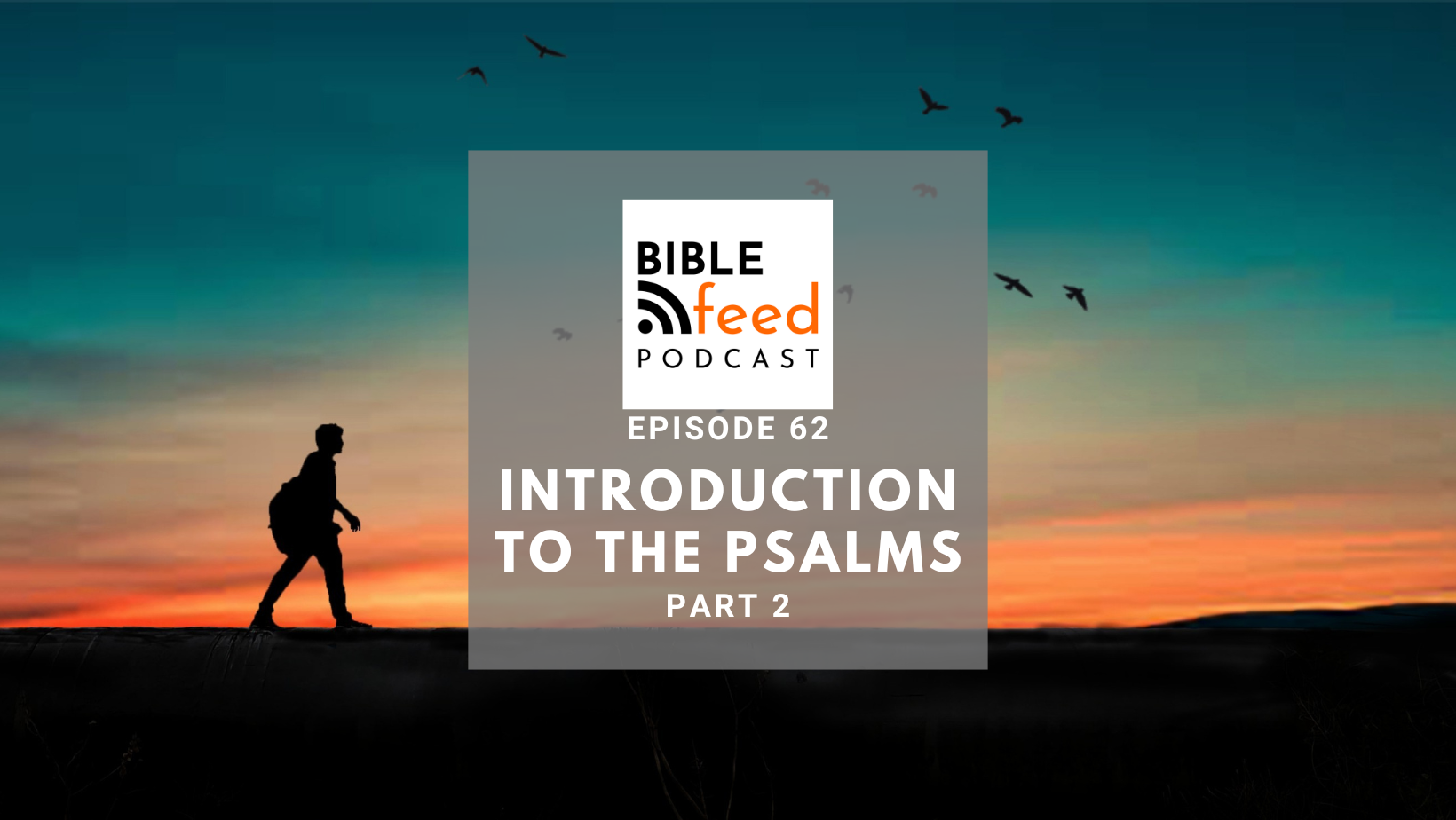Episode 62: Introduction to the Psalm (Part 2)
Jordan and Dan continue working through the ‘books’ within the Psalms. This time they look at books three, four and five and find that they can be seen to follow a spiritual journey. They find that some Psalms express doubts and uncertainties and deeply question what God is doing. But by remembering what God has done in the past the Psalmist is led back to peace of mind and trust in God, ending with a call for “everything that has breath to praise the LORD”!
Show Notes
After a brief recap from Part 1, the main conversation begins with Jordan and Dan picking up where they left off in the second of five books within the Psalter. They look at Psalm 51, an outpouring of David’s grief at the moment when he realises that he had sinned against God in the matter of Uriah the Hittite and Bathsheba. This is a helpful Psalm to help identify the problem of sin. On the journey towards a relationship with God, there are enemies both outside and within.
Psalms of crisis
The second book within the Psalter closes with Psalm 72, David’s words for Solomon which represents a change in era and a close of the majority of Psalms of David. Jordan and Dan then turn to the third book, from Psalm 73 to 89. There is a big shift in tone at this point in the book. Whereas the first two books appear to have a fairly stable and upwards trajectory towards worshiping God, this third collection of Psalms is now full of tragedy and lament.
Jordan turns to Psalm 89 as an example of the hopelessness that is captured within this section of the book. After recounting many of the past deeds that God had done, this Psalm then turns to God in anger; “How long, O LORD? Will you hide yourself forever? How long will your wrath burn like fire?” (Psalm 89:46). They discuss the link between this section and the exile period, after the destruction of Jerusalem and how the people of Judah were taken into captivity in Babylon.

Psalms of reorientation
The next collection takes a big step back when it opens in Psalm 90 with a Psalm of Moses. Jordan and Dan discuss how this fourth book in the Psalter helps to reorient the disillusioned nation and Psalmist by looking back at the great things that God had previously done in saving his people.
This collection includes many more joyful Psalms again, marking a big shift from crisis moment of book three. The tone reflects the past rescue from exile and captivity in Egypt, to inspire the nation into returning to their God through their own moment of crisis.
Completing the journey of the Psalms
Psalm 107 begins the fifth book of the Psalms, which expresses the way in which the Psalmist and the nation can be fully restored to God and be completely reoriented in their relationship. Jordan points out the refrain in Psalm 107:6-8 which expresses how people cry out to God in their trouble and return to him.
They discuss multiple features of book five which teach the reorientation of people towards God, including Psalm 119 and the sub-collection of Songs of Ascents (Psalms 120-134).
“Let everything that has breath praise the LORD!”
Finally, Jordan and Dan talk about the last five psalms which are an intensification of praise from individuals to the whole of creation. The whole collection teaches this journey that we all may go through. As the nation of Israel went through periods of intense crisis, and yet were able to reorient themselves towards God, it is the same for us. When we go through difficult periods, we can turn back to the things God has done to brings us back to a relationship with God.
Jordan and Dan summarise by talking about how we can best use the Psalms today, and how the Psalms point forward to Jesus. He also went through a big crisis moment in his life; he willingly gave his life and entered into the suffering that we experience. They briefly mention many other Psalms that point forward to Jesus, including Psalm 22, Psalm 45 and Psalm 110.
Further resources
Jordan’s work on the Psalms can be seen in more detail on the Walsall Christadelphians YouTube channel, where there are 63 videos of conversations about many individual Psalms and themes running through the book.







